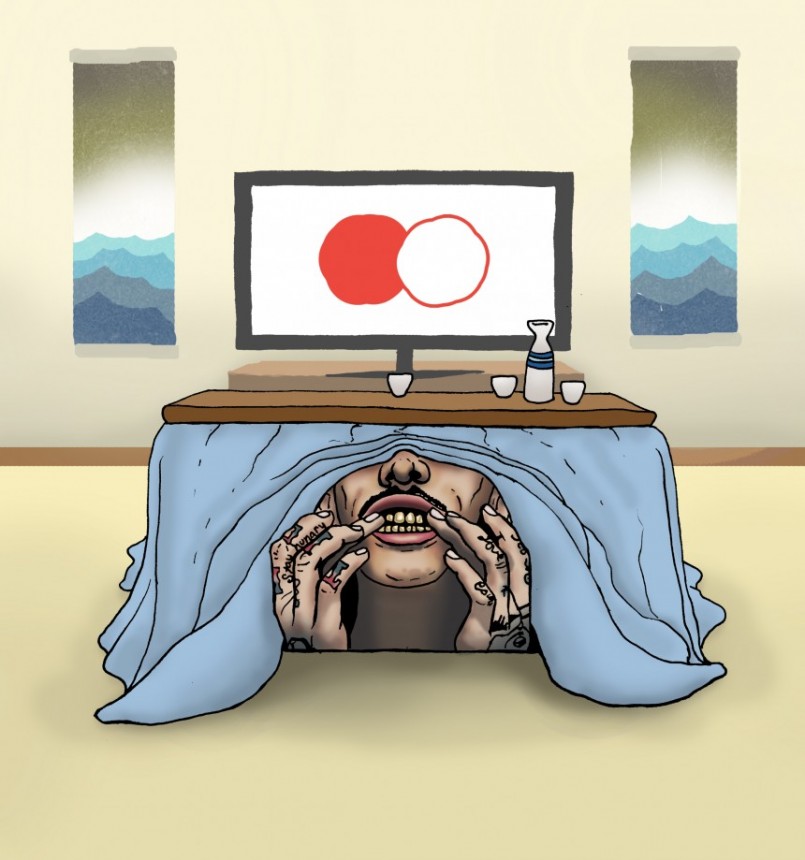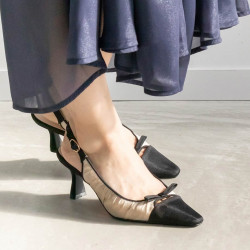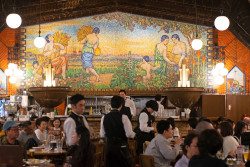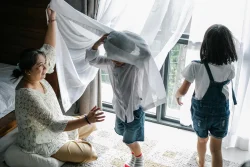
December 28, 2017
Kohaku Calling
The case for watching Japan's New Year TV institution–even if it's rubbish
By Tony Garner
“What shall we do for New Year?”
“Onsen ni ikitai?”
When my wife asks me if I want to go to the hot spring with her family there can be only one answer.
They live in Niigata, where winter really means winter. I picture myself in an outdoor bath as the steam rises off the water, against a backdrop of snow draped cedars.
“Hai!” I say.
The last time we did this was two years ago. Last year found me in Scotland, at an apartment party, where everyone was trying to drink enough to drown the memory of “The Year The World Went Mad.”
2017 will be another Japanese New Year for me, and if it’s anything like the last one it’s going to involve watching Kohaku (Year-end Song Festival).
The format of NHK’s traditional Hogmanay event has hardly changed since it was launched in the fifties. It’s a girls-versus-boys sing-off featuring familiar names in Japanese music, with the winning team chosen at the finale by a combination of judges and public votes. This year’s lineup includes AKB48 and E-girls for the girls’ side and Sexy Zone and Gen Hoshino for the boys’.
Kohaku is as mainstream as it gets. Hosting duties in recent years have been dominated by the ubiquitous man-boy-band Arashi, whose clean-cut image rules out anything off-key. The problem for NHK is that the public are tuning out. Last year saw the lowest percentage ratings share in Kohaku’s history, with only 39% tuning in compared to around 80% in the show’s heyday.
Japanese media is speculating about what tricks NHK might pull to lure young viewers back to the fold. Choice of performers is crucial, but the trouble is that Kohaku seems to be like a family party, where the same uncles and aunts have to be invited year after year to avoid offending anyone. It seems obvious that if the producers really wanted to shake things up they would invite edgier acts. What about the tattooed rapper Kohh, or even pop-rap crossover Daoko, billed as the Japanese Nicki Minaj?
This would be a way to ignite some lively conversation across the kotatsu. By now the older generation must be so used to the likes of AKB48 that they don’t bat an eyelid at bubblegum-pop performed by mini-skirted cuties. But the confrontational world of hip-hop remains terra incognita, and it would be interesting to see the response. Would my wife’s ninety-year-old grandfather rouse himself to attack the degeneracy of youth? Would my mother-in-law, who is generally in favour of change and progress, take Kohh’s side? Could I produce a grammatically-sound hypothetical question: “How would you feel if our daughter got a tattoo?”
Of course the chances of Kohaku stimulating this kind of debate are slim. I’m fully prepared for the forces of conservatism to win the day, and the show to be the same as ever.
But even if it ends up betraying all the familiar failings of a dull ruling-elite refusing to try anything experimental, I’ll still watch it with the three generations of my in-laws. There’s a ritual quality to Kohaku, rare in this age of Youtube, Netflix and an ever-more-fragmented entertainment culture. Not only in Japan, but across the globe, programs like it face an uphill battle to survive.
In fact, that’s why Kohaku still appeals to me: I’m thirty-something, so I get misty-eyed at the thought of TV choice being limited to whatever shows are on a few terrestrial channels at a given time. I’m pretty sure my Japanese contemporaries can relate to this.
So for us foreigners in Japan (at least those no longer in the first flush of youth), here’s a formula to understand Japan on New Year’s Eve: just get some good sake and sit down in front of Kohaku; hope for something fresh, but when it doesn’t arrive, settle instead for a nostalgia hit that might even transcend cultures.
The views expressed in “The Last Word” are those of the author and do not necessarily reflect the position or opinion of Japan Partnership Co. Ltd. or its partners and sponsors.
Want to have the last word? Send your article to editor@metropolisjapan.com







